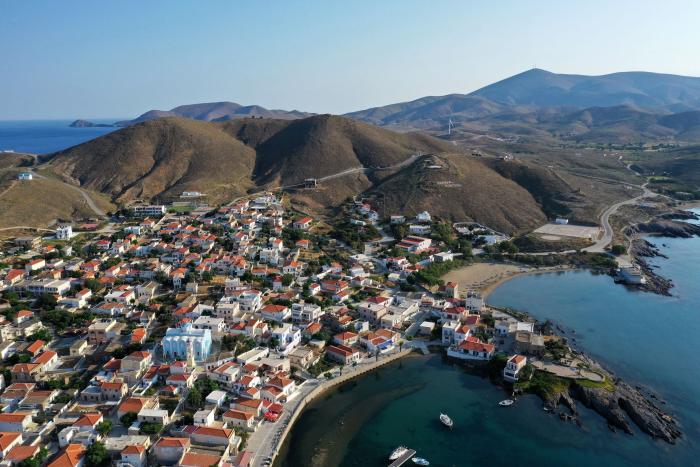
Island facts
The electrical system of Psara has for a long time been a wind energy net exporter through its interconnection to the island of Chios. However, the installed intermittent wind capacity can neither cover the island’s electricity needs on a 24/7 basis, nor provide resilience to the local grid or security of supply, in case of interconnection interruption. In such an event, critical infrastructure (water production and distribution systems, telecommunications, Rural Clinic, etc.) could remain out of service. It is to be noted that, as of today, there is no storage or synchronous generation/grid support installed on the island. Regarding transport on and to/from the island, it relies exclusively on vehicles and vessels running on fossil fuel. The heating needs of the islanders are mostly met with low-efficiency means, whereas heat pumps have only recently been installed in a few municipal buildings (however their performance and longevity are challenged by the electricity quality and stability of the local grid).
Organisations involved in the energy transition municipality of the Heroic Island of Psara - www.dimospsaron.gr/en, Public Power Corporation S.A. - www.dei.gr/en, National Technical University of Athens - www.ntua.gr/en
As part of the 30 for 2030 call the following activities are planned:
The preparation of the Clean Energy Transition Agenda (CETA) will involve supporting the development of a comprehensive agenda for the island, ensuring the engagement of islanders and other local stakeholders throughout the process.
Regulatory support will be provided to the Island Transition Team in its interactions with Central and Regional Governments, the Regulator, the Distribution System Operator (DSO), and the Transmission System Operator (TSO). This support will focus on appropriately adjusting the regulatory framework to facilitate the implementation of projects necessary for achieving the Trajectory’s targets of 100% renewable energy sources (RES).
Efforts will also be made to engage the local population and municipality in identifying and implementing energy efficiency measures in both private and public buildings.
Additionally, feasibility studies will be conducted for the renewable energy sources identified in the CETA as having the highest potential. A storage study will also be undertaken, focusing on sizing, business models, and financing options for energy storage solutions.
